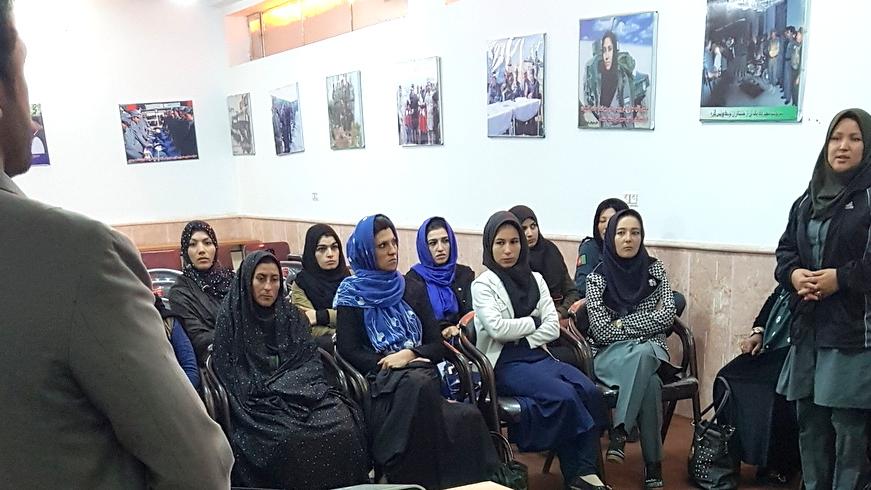HERAT - Ensuring the full implementation of the Elimination of Violence against Women (EVAW) law was the focus of a UNAMA-backed event for women police officers in the western province of Herat.
Some 35 women officers from Herat city and nearby districts came together at the event, also backed by the Office of the Herat Chief of Police, to discuss women’s rights as they pertain to the EVAW law, Afghanistan’s gender policy and procedures for reporting workplace harassment.
Naima Baluch, the Head of Herat’s Police Women’s Council, said that women working in government, especially the security sector, face stigmatization. “This needs to be stopped,” she said.
Abdul Khaleq Khan, a Human Rights Officer working with the Afghan National Police in Herat, echoed those sentiments, saying that policewomen, including those serving in more isolated rural areas, are often confronted with cases of violence against women.
“An understanding of the laws and policies affecting them and the women they serve is crucial,” said Mr. Khan, who noted that the event was set up to support police women as they deal with harassment and other violations of women’s rights.
Enacted in 2009, the EVAW law criminalizes acts of violence against women and other harmful practices, including child marriage, forced marriage, forced self-immolation, Baad (giving away a woman or girl to settle a dispute) and 18 other acts of violence against women including rape and beating.
Afghanistan’s gender policy, approved by the Minister for Interior in February 2016, outlines procedures to address workplace harassment, including gender-based discrimination, sexual abuse, intimidation, physical and psychological abuse.
The province of Herat shares a border with both Iran and Turkmenistan, and is known as one of Afghanistan’s major trading gateways.
UNAMA is mandated to support the Afghan Government and the people of Afghanistan as a political mission that provides good offices; promotes coherent development support by the international community; supports the process of peace and reconciliation; monitors and promotes human rights and the protection of civilians in armed conflict; promotes good governance; and encourages regional cooperation.






